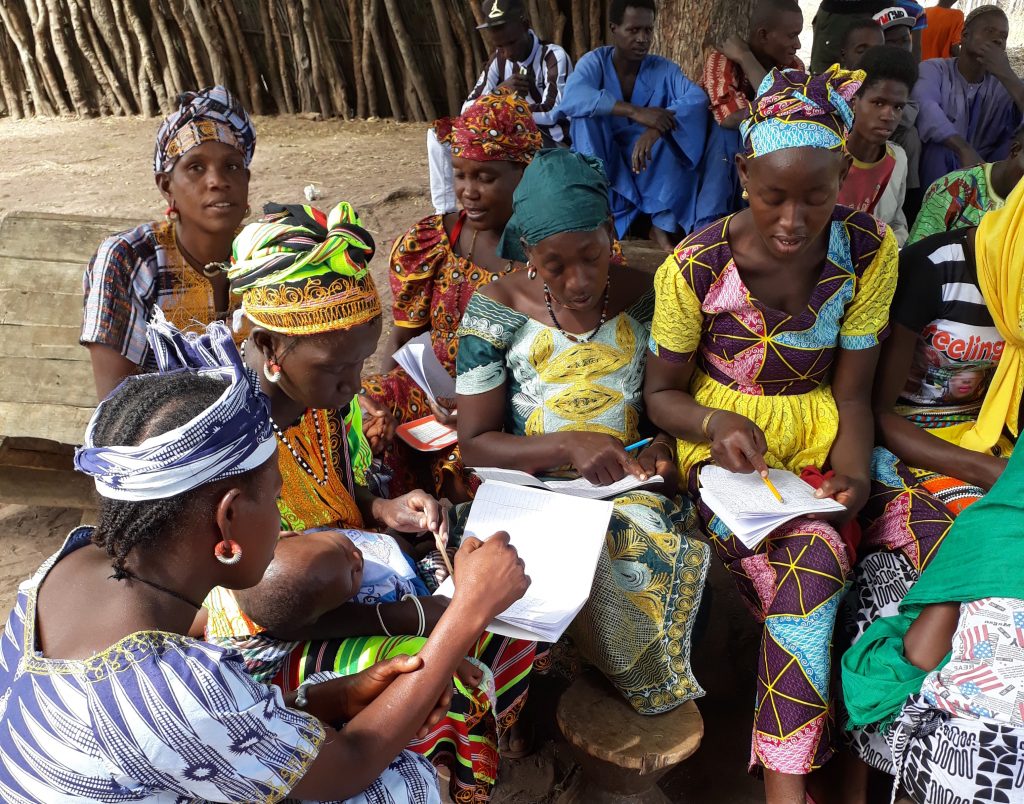
Qiongzhuoma Heimbel explains how family and intergenerational literacy and learning programmes can improve literacy rates around the world
Despite a rise in literacy rates in the last quarter of a century, more than 781 million adults around the world still lack basic reading and writing skills. Low levels of literacy prevent people from securing decent work and improving their lives. The 2014 United Nations General Assembly resolution, Literacy for life: Shaping future agendas, reaffirmed literacy as ‘a foundation for lifelong learning, a building block for achieving human rights and fundamental freedoms, and a driver of sustainable development’. In response, Member States began promoting more basic adult literacy programmes, especially for disadvantaged groups.
Quite often, the motivation for the adult learners who take part in these programmes is to improve their literacy skills in order to support their children’s learning. These adults, many of whom have never been to school or dropped out, understand that literacy can lead to a better life for their children. However, despite a desire to see their children progress at school, many parents who see themselves as ‘uneducated’ or ‘illiterate’ are reluctant to take part in learning programmes.
One way to overcome this is through family and intergenerational learning programmes that develop parents’ literacy capacities while addressing the learning needs of children. Guided by trained facilitators, family literacy programmes employ learning activities that are designed to be continued at home and which support everyday family life. Examples of these activities include making grocery lists, paying bills, making family photo albums, using recipes to cook a meal, writing letters and reading bedtime stories. In parallel, structured family learning instruction takes place at schools, libraries, community learning centres (CLCs) and other public spaces to provide adults and children with the necessary skills to continue learning at home, while adult-only sessions give parents an opportunity to develop their literacy, parenting and other essential skills.
A recent pilot family and intergenerational literacy and learning project in Ethiopia co-organized by the UNESCO Institute for Lifelong Learning followed this model. Home-based joint learning lasting up to 15 minutes per day was complemented by bi-weekly CLC-based learning sessions. During these sessions, adults and children were given separate age-specific instruction, with activities to be practised at home. Participants in the project were not only found to have improved their literacy and numeracy skills through this strategy, but also reported an enhanced bond with family members.
Adult participants in another family and intergenerational learning project, this time in the Gambia, were incentivized to improve their literacy skills together with their children through the group-work arrangements: many were eager to revise the lessons with their peers and were inspired to teach their children about daily economic, social and cultural issues. This, in turn, built their confidence to continue attending learning sessions.
To provide stakeholders with ideas on how to implement family and intergenerational learning programmes that are appropriate to their national contexts, UIL also published a resource pack, Learning Together across Generations: Guidelines for Family Literacy and Learning Programmes. A subsequent policy brief, Engaging Families in Literacy and Learning, suggests five policy recommendations to promote Member States’ intergenerational approaches to educational strategies and policies.
Family learning has a critical role to play in supporting all of the UN Sustainable Development Goals, addressing issues such as poverty, health and gender quality, as well as literacy and education more generally. When a family encourages and celebrates learning, this can break the intergenerational cycle of low education and literacy skills, disadvantage, inequality and exclusion. This results in a stronger bond between parent and child, more support for schools and neighbourhood institutions, and more prosperous and sustainable communities. For this reason, family learning is crucial not only in engaging and improving the prospects of the most vulnerable and hard-to-reach learners, children and adults, but also to wider social and economic inclusion and the long-term fostering of sustainable development.
Qiongzhuoma Heimbel is an Assistant Programme Specialist at UIL
